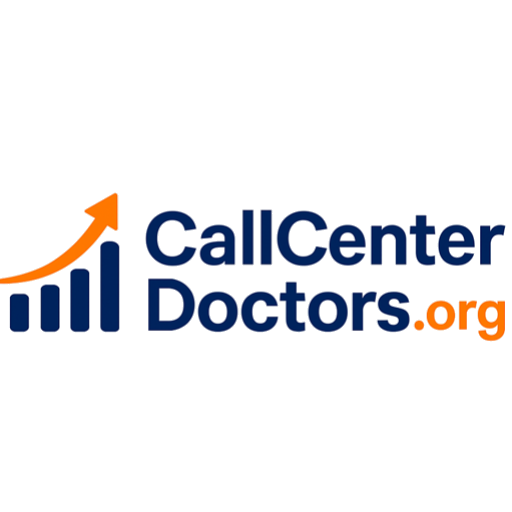Let’s take a breath a real one. Because if you work in a call center, you probably don’t get many of those.
Employee burnout in call centers isn’t just about being tired. It’s about feeling like the light inside you is dimming a little more every day. You start each morning already exhausted. You stare at the phone before logging in, and a part of you just wants to walk away.
You used to care — about customers, about your team, about doing a good job. But now? You’re running on autopilot. And it’s not because you’re lazy or ungrateful. It’s because you’ve given so much of yourself that there’s barely anything left to give.
You’re not broken. You’re just burnt out.
What Burnout Really Looks and Feels Like
Burnout isn’t dramatic. It doesn’t announce itself. It creeps in slowly. One missed lunch break here, one too many calls there. A few sleepless nights, a few fake smiles. Until suddenly, you’re numb.
You might notice that:
- You sigh a lot more than you used to.
- You start avoiding people, even outside of work.
- You find yourself staring at the clock, willing time to move faster.
- You cry after a bad call, then wipe your eyes before the next one.
That’s burnout — quiet, invisible, and heavy.
And if you’ve felt any of this, it’s not your fault. It’s what happens when people are expected to be endlessly patient, endlessly polite, endlessly available — without enough space to just be human.
Why Burnout Hits So Hard in Call Centers
Let’s be honest: call center work is no joke. You’re dealing with strangers’ problems all day, often with very little control over how you can help them. You’re juggling empathy, efficiency, and performance metrics — all while trying not to lose your cool.
The truth is, call centers doctors are designed for output, not emotion. And yet, every call requires emotion — warmth, calm, understanding. You’re giving emotional energy nonstop, and nobody’s refilling your tank.
Here’s what makes it worse:
- You can’t switch off the headset, even when you clock out — your mind keeps replaying calls.
- Scripts and targets can make you feel like you’re losing your own voice.
- Some days, the people you’re helping take their frustration out on you — and it sticks.
The system asks you to stay human in inhuman conditions. No wonder burnout hits so deep.
A Doctor’s Prescription for Healing
If a doctor were to write a prescription for employee burnout in call centers, it wouldn’t be just medication or rest. It would be compassion — the kind we rarely give ourselves.
1. Talk About It — Out Loud
Silence makes burnout worse. Find someone who listens — a friend, a coworker, a manager, a counselor. Saying “I’m not okay” isn’t weakness; it’s bravery. You can’t start to heal if you’re pretending everything’s fine.
2. Take Real Breaks
Not just scrolling breaks. Real ones. Step outside. Stretch. Breathe. Feel the air on your skin. Let your mind stop buzzing for a few minutes. Your brain and body need that pause to reset.
3. Ask for Control Where You Can
If you can, ask for more flexibility — a different shift, different tasks, a chance to grow. Having even a little say in your day-to-day work gives you back a sense of dignity and balance.
4. Celebrate Small Wins
Don’t wait for your manager to notice. Celebrate yourself. Maybe you calmed down a tough caller, or maybe you just made it through a rough day. Both are victories.
Write down those moments — they remind you that you’re still doing good work, even when it doesn’t feel like it.
5. Prioritize Rest and Real Life
Your worth isn’t measured in call volumes. You’re allowed to log off. You’re allowed to rest. You’re allowed to exist outside of your headset.
The world will still turn if you take care of yourself first.
6. Build a Culture of Kindness
If you’re a leader, remember that your people aren’t numbers — they’re hearts. Smile at them. Check in. Let them vent. Appreciation heals faster than any corporate incentive ever could.
The Recovery Journey: Finding Your Way Back
Healing from employee burnout in call centers isn’t a straight line. Some days you’ll feel better; some days you’ll still be tired. That’s okay.
The goal isn’t to bounce back — it’s to rebuild stronger, with boundaries and balance this time. You deserve to wake up without dread. You deserve to feel proud of your work again. You deserve joy, even in the middle of a tough shift.
Recovery starts when you remember that you’re more than your job title. You’re a human being — and that’s enough.
Final Thoughts: Healing the Humans Behind the Headsets
If you’re reading this and thinking, that sounds like me, please know this: you’re not weak. You’re human. And being human in a call center is one of the hardest jobs out there.
Employee burnout in call centers isn’t a sign that you can’t handle it — it’s a sign that the system needs to handle you better. You deserve rest, respect, and understanding.
Healing doesn’t happen all at once. It happens in small choices — taking that break, asking for help, showing kindness to yourself. Over time, those choices bring your light back.
Because call centers don’t run on scripts or systems.
They run on people — people like you, who show up every day, even when it’s hard.
And those people deserve care, not burnout.

